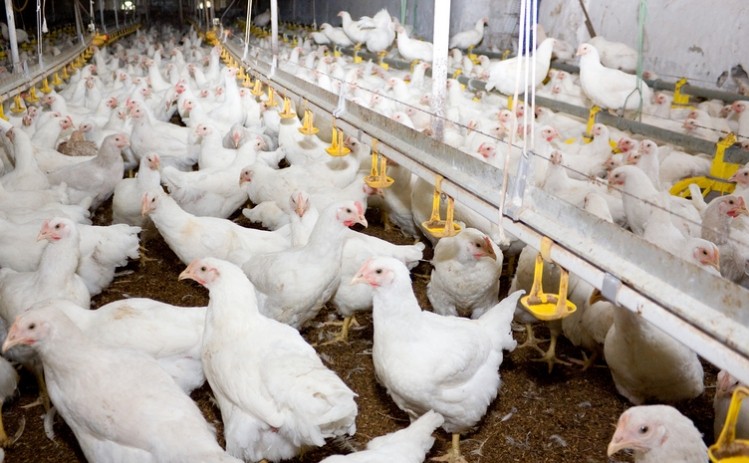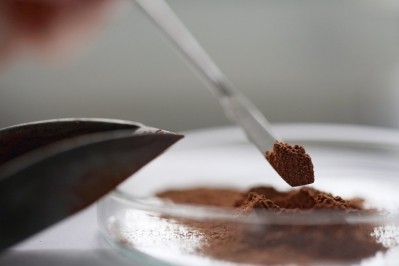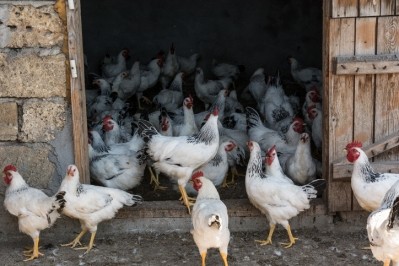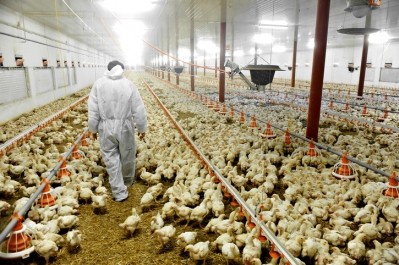Beer for birds: can in-feed hop plant extracts prevent poultry meat oxidation?

An international team of researchers from Brazil, Denmark and Belgium examined the use of hop β-acids as feed supplements for broiler chicken production.
The group published its work in the journal of Food Research International.
“Despite the fact that many reports in literature have been comparing the bacteriostatic efficacy of hop β-acids to the most used synthetic antibiotics in animal feeding trials for the evaluation of performance, there is little information regarding the metabolic effects following the use of hop as supplement for animal diet,” the researchers said. “Herein, we report the impact of increasing dietary levels of hop β-acids on the metabolic profile and redox stability of meat from broilers.”
The team found that adding the feed supplement made poultry proteins less susceptible to oxidation:
"The use of hop β-acids in the animal diet showed a positive effect on the prevention of myofibrillar protein oxidation since broilers fed with β-acids had lower protein carbonyl content when compared to the animals fed without supplement.”
Why hop β-acids?
Many food products see nutritional loss or quality deterioration from paths that involve lipids or proteins, the researchers said.
Adding phytogenic additives has been linked to a reduction in lipid and protein oxidation, but adding plant extracts to animal proteins may not be the best method.
Adding plant extracts to animal feed has been considered a potential alternative process that could improve the redox stability of the proteins produced without altering the meat taste, they said.
“Phytogenic additives for non-ruminant animal feed have been receiving attention due to their pharmacological properties holding the potential for replacing antimicrobial agents and growth promoters."
Several studies have examined the interaction between diet and animal performance, intestinal health, fat content, meat composition, oxidative stability and lipid metabolism in poultry and pigs, they added.
When added to feed, plant materials can access muscle tissue or become endogenous antioxidants, they said. Bioactive compounds may provide antioxidant mechanisms needed to protect meat against oxidation and improve animal health.
One potential plant-based feed additive is derived from hops used in brewing, said the researchers. The ingredient has been linked to antimicrobial activity, improved animal performance and intestinal health in broiler chickens and pigs, and contains two main sets of bioactive compounds: β-acids and α-acids.
However, there is little information about the influence that hops as a feed supplement has on an animal’s metabolism, they said.
Methods and materials
In the feeding trial, 1,440 day-old chicks were given one of four diets for a period of 42 days.
The diets included a negative control diet (T1), the control diet with β-acids at 30mg kg-1 (T2), the control diet with 60mg kg-1 β-acids (T3), and the diet with 240mg kg-1 β-acids (T4), they said. “The nutritional program was divided into four-phase feeding program: prestarter (1–7 d), starter (7–21 d), grower (21–35 d), and finisher (35–42 d), providing, respectively, 2950; 3000; 3100 and 3150 kcal kg− 1 of metabolizable energy; 23.3; 21.5; 20.0; and 19.0% of crude protein; and 1.31; 1.17; 1.08; and 1.01% of lysine,” they added.
A sample of animals per diet was collected on day 42 to collected muscle tissue and samples for analysis, they said. The redox status of broiler breast meat also was checked.
Results
Changes were found in the tissue of animals fed the different levels of β-acids when compared to control group birds, the researchers said.
“A moderated level of hop β-acids as dietary supplement accordingly improve the overall redox stability, protecting myofibrillar proteins and fatty acids against oxidation and improve the nutritional properties of meat from broiler chickens,” they said.
The amount of the dietary supplement was found to alter the average concentration of polar metabolites, and hop β-acids altered the levels of amino acids, sugars, nucleotides and peptides found, they added.
“The addition of β-acids in the diet of chickens was found to increase the concentration of valine, glutamine and succinate when compared to the animals fed with control diet. Chicken fed with 30 mg kg− 1 of β-acids showed high concentrations of lactate, β-alanine, glutamine, creatine, carnosine, anserine, glucose, NADH and succinate.”
Increased levels of creatine, carnosine and anserine also may boost nutritional value for human consumption, they said.
“Chicken fed the highest level of β-acids (T4) presented the highest concentrations of leucine, isoleucine, valine and glycine and the nucleotides ATP/ADP/AMP,” said the researchers. “Such high ATP/ADP/AMP content indicates significant alterations in the energetic metabolism of chickens of T4 feed group compared to the other treatment levels.”
However, the main variation in metabolite amounts did not follow the level of the feed supplement used, they said. The largest differences were seen between the control group and birds getting the T2 diet.
Similarly, the animals with the least radical formulation in tissue samples exposed to thermal incubation were from birds getting the T2 diet, they said. “The increased redox stability in these samples may be related to the highest level of endogenous antioxidants, especially anserine, carnosine and NADH."
Fatty acid composition of tissue also changed depending on the level of β-acids added to the diet, they said. Polyunsaturated fatty acids (PUFAS) and monounsaturated fatty acids along with lauric acid, palmitic acid, heptadecenoic acid all increased for the birds getting the supplemented diets – especially T2.
“Diet and storage period were found to affect protein oxidation and myosin and actin were recognized as the main targets of protein oxidation,” said the researchers. “Myofibrillar proteins from chicken fed hop β-acids showed to be less susceptible to oxidation.”
Source: Food Research International
DOI: doi.org/10.1016/j.foodres.2017.10.072
Title: Effect of hop β-acids as dietary supplement for broiler chickens on meat composition and redox stability
Authors: A. Zawadzki, C. Alloo, A. Grossi, E. do Nascimento, L. Almeida, S. Bogusz Jr, L. Skibsted, D. Cardoso


















